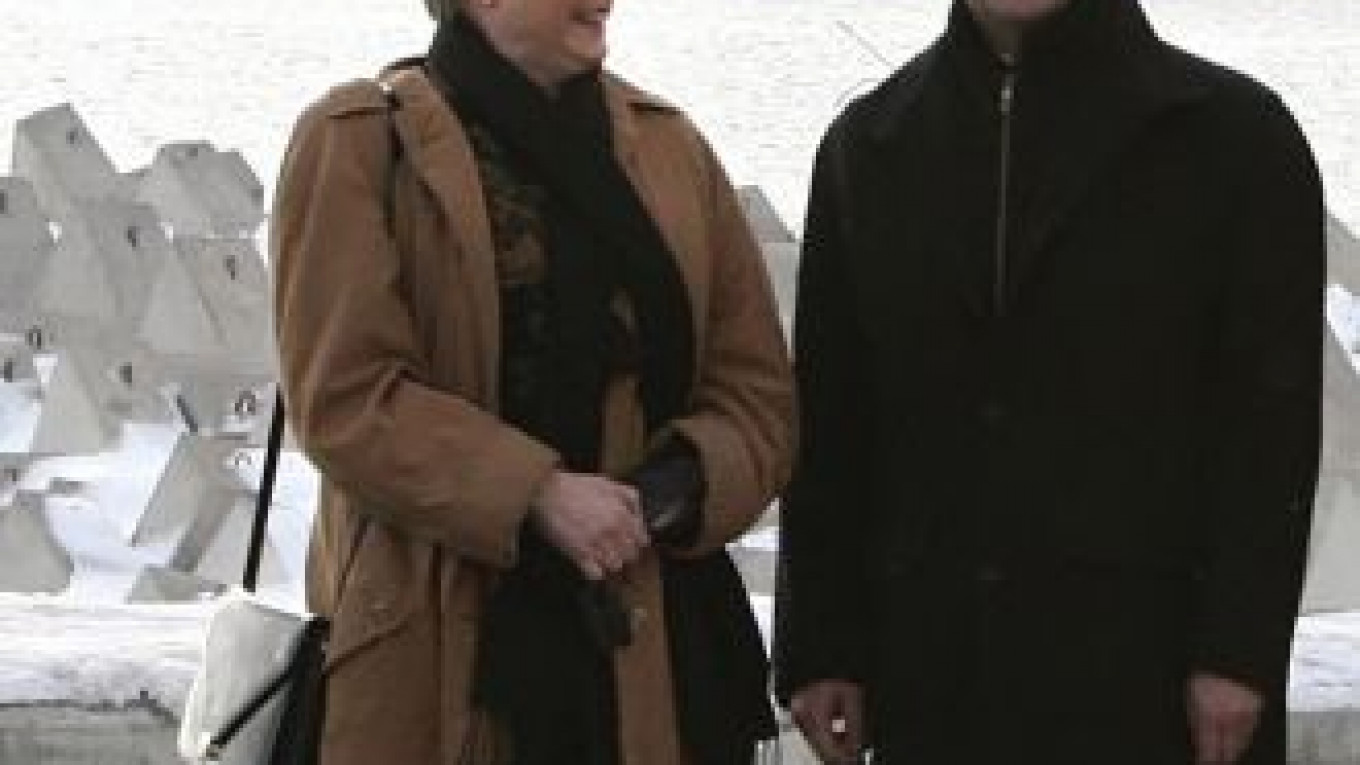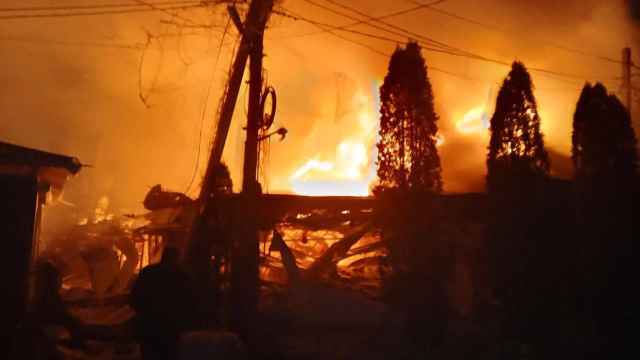One of Maria van der Hoeven's favorite souvenirs — a tablecloth — is from Russia.
It came as a gift from First Deputy Prime Minister Viktor Zubkov during her multiple visits to the country as the Dutch economic affairs minister.
Now preparing to be the next executive director of the International Energy Agency, she recalled that the cloth stood out from the usual baubles officials receive on international trips.
"It was so special because it showed me that the one who gave it to me … knew I would like it very much," she said in an interview by phone from the Netherlands. "And I liked it very much."
Van der Hoeven could well be the IEA executive director with the most first-hand knowledge of Russia — a fact that could prove conducive to a better understanding in the group's interaction with the world's biggest energy exporter. And seeking closer ties with non-member countries like Russia is a goal that she identified as a key challenge for the IEA, whose focus includes global energy dialogue and research.
Van der Hoeven, who is taking over from Japanese Nobuo Tanaka at the IEA on Sept. 1, said her experience in dealing with Russian government officials and Gazprom executives would affect her new work "in a very positive way."
"Contacts with Russia, as part of an outreach program, are very important for energy security," she said. "I think it's very wise to continue these contacts, to deepen them, to intensify them and see in what way these contacts can really lead to a win-win situation."
Her most frequent Russian counterpart in Russia and the Netherlands was Zubkov, but she also met Energy Minister Sergei Shmatko, Gazprom chief executive Alexei Miller and his deputy Alexander Medvedev.
"If you really want to do business with Russia … it's really very important that you invest in contacts," she said.
They built good interpersonal relations, van der Hoeven added.
"I remember them warmly. If you don't beat about the bushes, if the things you show are the things you are, it leads to trust and confidence," she said. "I think this is what happened."
Her most recent visit was to attend the International Economic Forum in St. Petersburg in June. In her presence, Gazprom and Dutch natural gas transportation company Gasunie signed a memorandum of understanding on strategic cooperation.
Gasunie chief Marcel Kramer has since taken a job to lead the South Stream pipeline project, a joint effort between Gazprom and Italy's Eni.
Van der Hoeven also traveled to Yamal in May to look at Gazprom operations in the frozen Arctic and attend the signing of a cooperation agreement between the company and the Project Delta Group, a collection of Dutch firms — including Shell — that are interested in helping Gazprom develop new fields in the area.
She earlier attended the ceremony for the start of construction of Nord Stream near Vyborg in April. Gasunie is a shareholder in the Gazprom-led project to lay a pipeline to carry Russian gas to Europe across the Baltic Sea.
In addition, she visited Sakhalin and, of course, Moscow.
Van der Hoeven diplomatically said in the interview that South Stream, the planned natural gas pipeline under the Black Sea from Russia to Bulgaria and overland to southern Europe, would be a useful additional route for Russian supplies — a stance largely consistent with what the European Union leaders say, although they usually add that the project isn't a priority for the bloc.
"The capacity of pipelines must be more than it is now," van der Hoeven said, noting that Europe also has interest in Nabucco, which would deliver gas from around the Caspian Sea, as an alternative to Russian supplies.
Speaking about Russia's efforts to step up cooperation of the world's major gas producers — grouped into the Gas Exporting Countries Forum —she warned about any moves toward price-fixing on the market. The Netherlands is an observer in the organization, chaired by a Russian, which also seeks dialogue with customers.
"One of the things we are very keen about is that this group doesn't turn into a kind of cartel that can be compared with OPEC," she said. "Contacts between producers and customers must lead to transparency in pricing."
She declined comment on the EU's third energy package that requires oil and gas producers to sell their pipelines, a measure that Prime Minister Vladimir Putin and Gazprom vehemently oppose. Van der Hoeven, who was elected as the next IEA executive director earlier this month, said she would make her opinion public only after she assumed office.
"It's a very political question," she said.
A Message from The Moscow Times:
Dear readers,
We are facing unprecedented challenges. Russia's Prosecutor General's Office has designated The Moscow Times as an "undesirable" organization, criminalizing our work and putting our staff at risk of prosecution. This follows our earlier unjust labeling as a "foreign agent."
These actions are direct attempts to silence independent journalism in Russia. The authorities claim our work "discredits the decisions of the Russian leadership." We see things differently: we strive to provide accurate, unbiased reporting on Russia.
We, the journalists of The Moscow Times, refuse to be silenced. But to continue our work, we need your help.
Your support, no matter how small, makes a world of difference. If you can, please support us monthly starting from just $2. It's quick to set up, and every contribution makes a significant impact.
By supporting The Moscow Times, you're defending open, independent journalism in the face of repression. Thank you for standing with us.
Remind me later.






